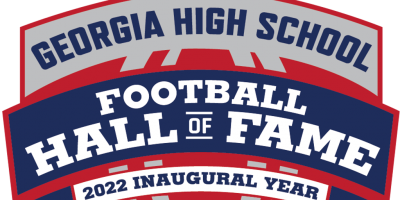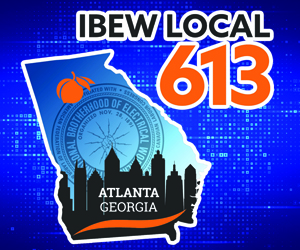
Sports marketing company Score Atlanta will be the driving force for building the first-ever Georgia High School Football Hall of Fame, which will induct its first class later this fall.
The Georgia High School Football Hall of Fame will induct only players as the coaches for all high school sports have their Hall of Fame dedicated to their profession in Dalton. The GHSFHF, however, will induct a state championship team every year, as well as giving a distinguished service award.
The Hall will feature players from Georgia High Schools when they began playing football in 1894, a date referenced by the Georgia High School Football Historians website. The sport began to grow when the Georgia High School Association (GHSA) was formed in 1908, having their first state championships in 1947. There was also an association called Georgia Interscholastic Athletic Association (GIAA) that covered larger schools in the 1930’s and 40’s. The African-American schools also had the Georgia Interscholastic Association (GIA) and lasted from 1948-69 and had 61 state champions over that time.
The Hall is the brainchild of Score Atlanta President I.J. Rosenberg, who was involved in the Baseball Hall of Fame in Cooperstown during his years covering the Braves for the Atlanta Journal-Constitution. In 2019, Rosenberg started what has become a successful Hall of Fame at the high school he attended, Lakeside in Dekalb County, a school that won 24 state team championships in the 1970’s.
“This is long overdue,’’ said Rosenberg. “The history of Georgia High School football is tremendous and for years Georgia has been known to have some of the top players in country. But the idea here is not just to induct players, but tell the story of high school football in Georgia. We will dig into the early years and will research players and induct players from African-American schools when they were not allowed to attend white schools and play against white teams. An example I always like to use when talking about the depth of Georgia football is the fact that currently there are seven NFL Hall of Famers that played at Georgia High Schools. Ray Guy, the only punter in the Hall of Fame, played at Thomson High School where in 1968 he quarterbacked the Bulldogs to a state championship and was named Back of the Year by the Atlanta Journal-Constitution. I bet you didn’t know that.’’
The Hall will be run by a board of directors, co-chaired by former Brookwood and state championship coach Dave Hunter and recruiting expert Rusty Mansell of 247Sports, a star at Pepperell High School. The board will be broken down into 12 areas to cover the entire state, with a board member representing each of those areas. While the board is not totally finalized, it will include GHSA Executive Director Dr. Robin Hines, Gwinnett County athletics director Ed Shaddix, Atlanta Public Schools athletics director Jasper Jewell, former coaches Lynn Hunnicutt (Pepperell), Ed Pilcher (Thomas County Central), Jimmy Dorsey (McEachern) and Raymond “Tweet” Williams, who coached the all-black Turner High School to a state championship in 1954. The board will also have former AJC high school editor and now GHSA director of media relations Steve Figueroa, McEachern principal Regina Montgomery, current Fellowship Christian coach Tim McFarland, Bryan LaMar (South Gwinnett), Eric Parker (Burke County), Maurice Freeman (Brooks County) and Savannah sports legend Earl Etheridge. The at-large board member will be Randy Beall, business manager of Atlanta North Georgia Building Trades Council.
The voices of the Hall that will retain board spots will be Bill Hartman, Buck Belue and Matt Stewart as well as Craig Sager Jr., who will collect all the info for the plaques and edit them. The Hall will also work closely with longtime GHSA marketing director Alan Sharp.
The players will be picked from four buckets. The first will cover the early years of high school football, a span that ends after World War II. The second bucket will cover the segregated African-American schools, which were not fully integrated until the 1970’s. The third bucket will be what is called the Golden Age of High School in Georgia football from 1950-80. The last bucket will be modern day high school football in Georgia which covers the last 40 years.
The Hall is talking to various venues for the first induction ceremony, including the College Football Hall of Fame in downtown Atlanta. The ceremony will be a red-carpet celebration with inductees receiving a custom-made GHSFHF jacket and plaque, and the Hall is working with a local jeweler on creating a special medallion that Hall of Famers will be able to wear.
“Right now, we are going to focus on putting in a process to choose inductees and make sure we are covering the entire state,’’ said Rosenberg. “The board is very diversified and will be the one making the decisions. As far as where we will house the Hall, the feeling is to find a public place that has good traffic where we can hang the plaques. I have spent a lot of time studying the Indiana High School Basketball Hall of Fame, which is incredible. They have their own building and while high school basketball in Indiana has always been well known, their Hall of Fame outside Indianapolis has taken it to another level. We are going to build slowly here, starting with an inaugural class that be around 35 players.’’
Score Atlanta will use its various high school platforms to market the Hall on all their televised events, which include The Corky Kell Classic, The Great Atlanta Bash, Drive For The GHSA State Final and Georgia Elite Classic. Also, a major tool that will be used to identify players will be the very popular Georgia High School Football Historians website, created by Todd Holcomb, who will be the Hall’s historian.
“We have a great relationship with CBS46 and PeachtreeTV, doing 30 high school football games on television last year, and I have scheduled time to talk about how we possibly make this into a television event,’’ said Rosenberg. “The success of this Hall will help be determined by the partnerships we create across Georgia, utilizing newspapers, libraries, former high schools, testimonies from former players and coaches. The biggest thing I learned from my involvement with the Baseball Hall of Fame is to turn over all stones. Cooperstown was a different place 30 years ago, but when it began to bring in players from the Negro Leagues as well as turn-of-the-century players, the place became more relevant, more complete. We have a chance to do that from the beginning here.’’
For more information on the GHSFHF, contact I.J. Rosenberg at ijrosenberg@comcast.net







































